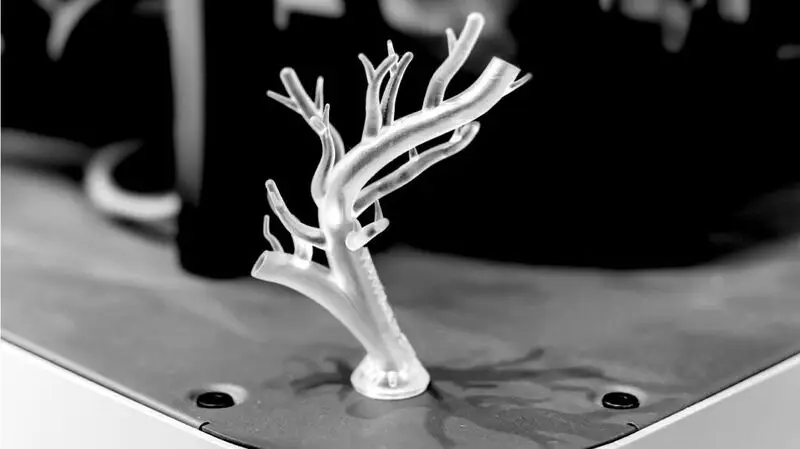
- A new study examines how a lesser-known part of cell biology may impact the aging heart.
- Specifically, the scientists investigate the extracellular matrix, which helps support the structure of cells, among other things.
- The authors hope that their study might lead to innovative ways to slow and even reverse the aging of the heart.
As we grow older, the body’s organs and systems tend to slow and become less efficient, and the heart is no exception.
According to the authors of a new study, the extracellular matrix (ECM) may play a pivotal role in the decline in cardiac function that we see with age.
They hope that their research, which utilizes an innovative new material, may one day help us slow this process. Here, we will explain their study and what the future may hold.
We will also provide tips for reducing heart aging that you can start today.
The
Depending on where in the body it is, it generally provides structural support, stops different tissues from sticking together, enhances cell-to-cell communication, and assists in wound healing.
Why does it matter for heart health?
According to the authors of the recent paper, which appears in
They explain that these ECM changes may play a part in the stiffening of the cardiac muscle that occurs as we grow older. Age-related changes trigger so-called cardiac fibroblasts, which can lead to fibrosis: A buildup of connective tissue, as seen in scarring.
Although fibrosis is an important function and helps repair heart tissue after damage, when it is uncontrolled, it leads to a stiffer, less flexible ECM. In the case of the heart, this can make it less efficient at pumping blood.
Focusing on the ECM is relatively novel. “Most aging research focuses on how cells change over time,” explains Jennifer Young, senior author of the study and assistant professor at the Mechanobiology Institute of the National University of Singapore. “Our study looks instead at the ECM and how changes in this environment affect heart aging.”
To help uncover the role of the ECM in heart health, the team designed a new, hi-tech model called DECellularized In Situ Polyacrylamide Hydrogel-ECM hybrid (DECIPHER).
This model was created using heart tissue from a rat and a lab-created gel that shares physical properties with ECM.
Previously, the authors explain, it was unclear whether changes in cell signaling or changes in tissue stiffness were most responsible for age-related declines in heart function.
“The DECIPHER platform solves this problem,” explains Avery Rui Sun, first author of the study, in a press release. He explains how it allows “researchers to independently control the stiffness and the biochemical signals presented to the cells — something no previous system using native tissue has been able to do.”
In other words, they could adjust the model and see what happens when cell signalling occurs as it does in a young heart, but with an older, stiffer ECM. Conversely, they could mimic the biochemical signals of an aged heart with a young, flexible ECM.
They found that “young” cell signaling outweighed the negative effects of the stiffer ECM. In reverse, young cells placed on “aged” ECM showed signs of dysfunction.
This implies that “the biochemical environment around aged heart cells matters more than stiffness,” explains Young.
Medical News Today reached out to Nishant Kalra, MD, an interventional cardiologist, chief medical officer at VitalSolution — an Ingenovis Health company — who was not involved in the study.
“Surface molecules (ligands) found in young heart tissue can prevent the activation of fibrosis-promoting cells, even when the tissue is as stiff as aged heart tissue, which points to new ways to target the extracellular environment to slow heart aging,” he told us.
Human studies next“This work provides a platform for identifying molecular mechanisms and potential therapeutic targets to prevent or reverse age-related cardiac dysfunction. While promising, human translation requires further validation, as the study used rat cells.”
— Nishant Kalra, MD
Although intriguing, it will be countless studies and many years before these results will lead to new treatments. However, there are many science-backed lifestyle changes that will support your heart as you age.
We asked Kalra for some tips on maintaining heart health. “For lifestyle-based prevention of heart aging, the most evidence-based strategies are:”
- Regular aerobic exercise: At least 150 minutes of moderate-intensity or 75 minutes of vigorous-intensity aerobic activity per week
- Adherence to a healthy dietary pattern: Emphasize fruits, vegetables, whole grains, and lean proteins while limiting saturated and trans fats, cholesterol, and sodium, such as by adopting the Mediterranean or DASH diets.
- Stop smoking: Tobacco damages blood vessels and increases the risk of heart disease.
- Adequate sleep: Aim for 7–9 hours of quality sleep per night. Sleep deprivation can negatively impact heart health.
- Weight management: Obesity is a major risk factor for heart disease.
- Stress reduction: Find healthy ways to manage stress, such as exercise, meditation, or spending time in nature.
“These behaviors,” he continued, “are consistently associated with reduced biological and cardiovascular aging, as shown in large epidemiological studies and supported by the American Heart Association.”
MNT also reached out to Daniel Atkinson, MD, a family physician from the United Kingdom, working for a private healthcare company called Treated. He also advised reducing alcohol intake.
“Keep it below 14 units (roughly 4–5 drinks) per week, avoid drinking more than 3 drinks in any one session, and give your body (and heart and liver) a break from alcohol for at least one continuous 48-hour period each week.”
— Daniel Atkinson, MD
“Excess alcohol consumption carries a few Health risks,” Atkinson said, “and among these is the effect it can have on raising blood pressure, which elevates your risk of heart disease.”
He explained how drinking alcohol in excess can weaken the heart muscles, making it more difficult for the heart to pump blood around the body.





